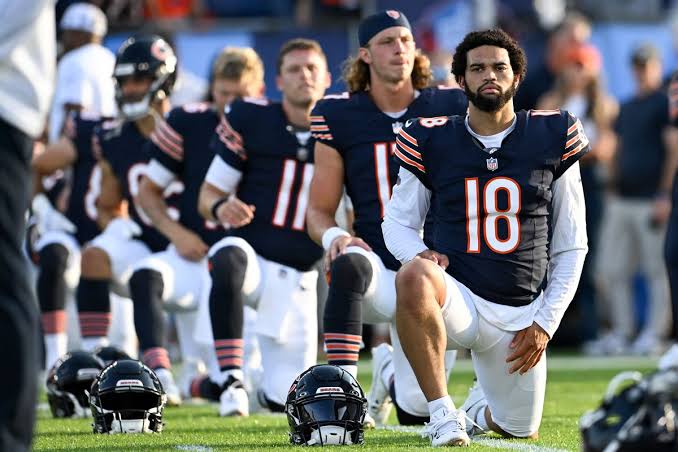
In the high-stakes world of the NFL, trades often come with a whirlwind of emotions and reactions. Recently, Chicago Bears linebacker Montez Sweat expressed that he felt a little offended following his trade from the Washington Commanders, sparking conversations about player loyalty, the business of football, and the emotional toll of such decisions.
The Context of the Trade
Sweat was part of a significant trade between the Commanders and the Bears, a move that many analysts believe was aimed at bolstering Chicago’s defense as they navigate a challenging season. While trades are common in professional sports, they often stir up feelings of betrayal among players, especially those who have invested years into a single franchise.
For Sweat, his comments reflect a deeper issue within the league: the struggle for player autonomy and the emotional impact of being traded. I was a little offended, he admitted in a press conference, but I didn’t take it personally. It’s a business.” This duality is emblematic of the modern athlete’s experience, caught between their personal attachment to a team and the reality that professional sports is, at its core, a business driven by profit and performance.
The Emotional Toll of Trades
Sweat’s candidness highlights a crucial yet often overlooked aspect of professional sports: the emotional ramifications of trades on players. Many fans view trades as mere transactions, a way to strengthen a team’s chances for success. However, for players like Sweat, these moves can feel like a rejection, a sign that their contributions are no longer valued by the organization they called home.
It raises questions about how teams communicate with players regarding their futures. In Sweat’s case, he had built a rapport with his teammates and felt a part of the Commanders’ fabric. Being traded can feel like an abrupt severance from that identity, leading to a mix of resentment and acceptance, as players grapple with the business side of the game.
Loyalty vs. Business
The NFL is known for its cutthroat nature, where loyalty is often overshadowed by business interests. Fans might wonder how much a player’s emotional investment matters when the stakes are so high. For Sweat, acknowledging his offense is a testament to his commitment to the Commanders. His performance on the field was a reflection of his dedication, and the trade can be perceived as a dismissal of that effort.
This situation also opens the door to discussions about how franchises communicate with players about potential trades. While some organizations maintain transparency, others may keep players in the dark until the last moment. The fallout from such practices can lead to a culture of mistrust, affecting team dynamics and player morale.
Reactions from Players and Analysts
The NFL community’s reaction to Sweat’s comments has been mixed. Some players sympathize with him, recognizing the emotional challenges that come with being traded. Others argue that in a league that values performance above all else, players must be prepared for the possibility of being moved at any moment. Analysts have pointed out that while emotional reactions are valid, they need to balance their feelings with the understanding that the league operates on a business model where wins translate to revenue.
This dichotomy reflects a broader cultural conversation about mental health in professional sports. As players navigate their careers, they must also contend with the pressures of public scrutiny, team expectations, and their personal sense of identity. The narrative surrounding Sweat’s trade could serve as a catalyst for further discussions about how to support players emotionally during these transitions.
The Future for Sweat and the Bears
Looking ahead, Sweat’s integration into the Bears’ defense will be closely monitored. He has already shown flashes of brilliance that could elevate Chicago’s performance, but the emotional adjustment to his new team will be crucial. The Bears’ coaching staff will need to foster an environment that helps him feel welcome and valued, particularly as he moves forward from the feelings of offense he experienced during the trade.
As for the Commanders, they must face the repercussions of their decision to trade a player who, despite his recent sentiments, was a key contributor to their defense. This move could either bolster their roster in the long run or backfire if Sweat thrives in Chicago, raising questions about whether the right decision was made.
Conclusion
Montez Sweat’s reflections on his trade from the Commanders to the Bears highlight the complex emotional landscape of professional sports. While the NFL is undeniably a business, the human element—the emotions, the relationships, and the personal investment of players—cannot be overlooked. As the season progresses, both Sweat and the Bears will be under the microscope, not just for their performance on the field, but for how they navigate the often-turbulent waters of player transitions in the league.






